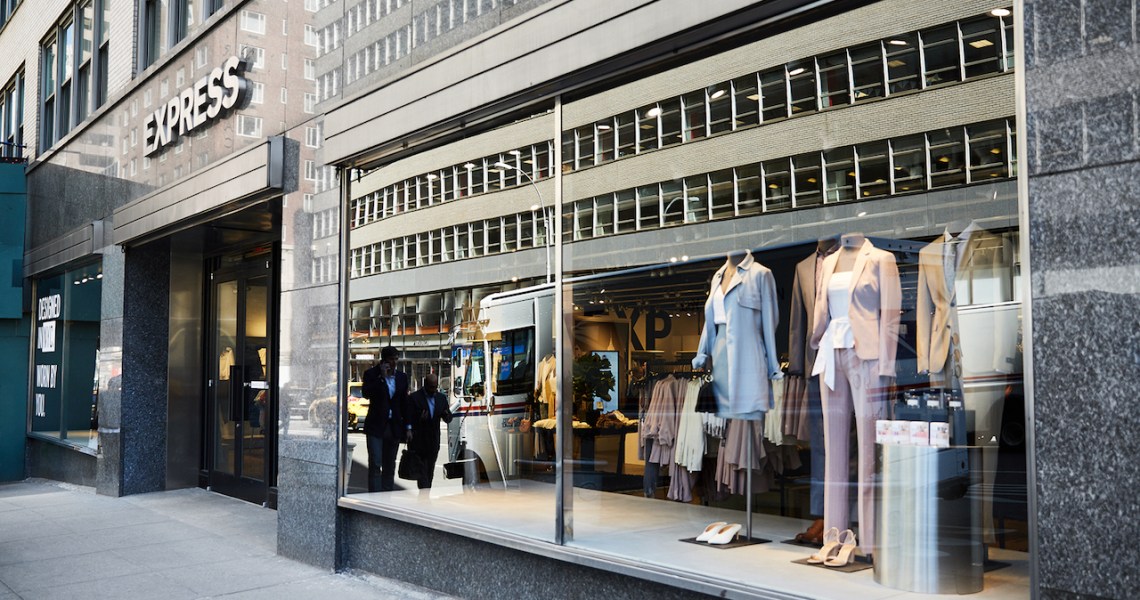Update: On April 22, 2024, Express filed for bankruptcy.
Express Inc.’s troubles continue. Just four months after it was nearly delisted from the New York Stock Exchange, due to share prices falling below $1 per share, the company has now announced that it’s making significant layoffs as it seeks to keep its expenses under control.
Late on Thursday, Express announced several cost-cutting measures and an overarching plan to get flagging sales back on track. That will include laying off 150 employees in 2024, which will represent a $30 million cost reduction, CEO Tim Baxter said in a public statement for Express. That $30 million will be part of a larger $120 million cost reduction effort for 2024. That’s on top of the $65 million in reductions estimated for 2023. Express hopes to increase its cost reduction in 2025 to $150 million, Baxter said.
In April of this year, Express’s share price dipped to $0.63 per share, putting it at risk of being delisted from the NYSE after several quarters of falling sales. At the time, Baxter said the company was considering a reverse stock split. Through the financial process, a company can consolidate the number of shares in the company that exists, artificially increasing the value of each share without changing the overall value. As part of Thursday’s announcement, Baxter said Express would indeed be going through with a 20-to-1 reverse stock split, a move often reserved for desperate times.
“We are conducting a comprehensive review of our business model to identify actions that we believe will meaningfully reduce pre-tax costs and enable a more efficient and effective organization,” Baxter said in the statement.
Part of Express’s struggles can be put down to macroeconomic factors depressing spending and putting pressure on brands’ bottom lines, analysts said. Even brands that were doing well in 2021, as Express was, have now found themselves struggling as the U.S. economy slows. By the middle of 2023, Express had lost 70% of its value from the year before and was operating on a $67.5 million loss after spending $163 million on, among other things, expensive new brick-and-mortar stores.
“Global consumer demand continues to soften due to the current economic climate, resulting from rising inflation, the high cost of food and services, and ongoing disruptions to global supply chains and raw materials,” said Susan Chae, vp of client services at wholesale platform NuOrder. “Like many other businesses, we see consumers cutting back [investment] on non-essential items. Apparel categories that were performing well during and immediately after the pandemic are now starting to forecast lower demand and are adjusting their business strategy accordingly. We don’t anticipate the outlook to change in the foreseeable future.”
Modern Retail reported in April that Express was hoping its new $75 million acquisition of Bonobos would help boost its revenue, but that doesn’t seem to have happened so far. Express’s expected revenue for the second quarter is around $450 million, down from the $514 million it reported in the fourth quarter of last year.
“Fast-fashion retail has been shifting over the last decade, and Express is, unfortunately, struggling to remain relevant and competitive among its core consumers,” said Rae Guimond, strategy and business development director at commerce tech company PriceSpider. “We’re seeing fast-fashion apparel brands struggling to retain shoppers and grow their audience. That’s due to a lack of differentiation in a highly competitive market, failure to adapt to changing consumer trends, and poor technology management or innovation investment in omnichannel shopping experiences.”




